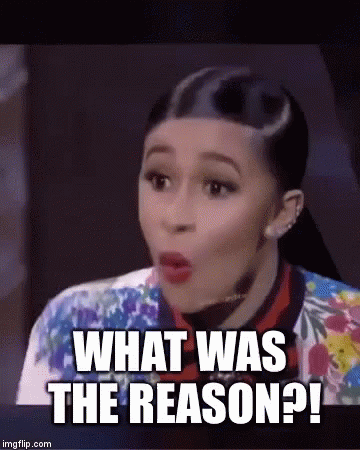Marvel’s Eternals Proves Divisive, Which Makes It Marvel’s Most Interesting Project Yet


Right now, the upcoming Marvel film Eternals, directed by Oscar winner Chloé Zhao, has the distinction of being the first “Rotten” film in the Marvel Cinematic Universe on movie review site Rotten Tomatoes, which is leading to some speculation as to why. There are both good and bad aspects to that.
As of the time of writing this, Eternals has a Rotten Tomatoes score of 59%, which is lower than any official MCU film. And yes, that is lower than 2008’s The Incredible Hulk, since I’ve seen people wonder if it counts. It sure does.
In many ways, this divisive response does not surprise me—not because of the cast, which is full of BIPOC actors, nor because it features the first gay superhero onscreen (without it being blink-and-you-miss-it diversity), but because Marvel’s Phase 4 era is going to be a lot weirder and less mainstream.
Overall, the reviews from critics have said that the film is ambitious and interesting. Justin Chang, for the L.A. Times wrote in his review: “What initially seemed fresh and invigorating devolves into something you’ve seen countless times before: The fate of the world hinges on an epic burst of teamwork, as well as one character’s perfunctory realization of long-suppressed potential. […] You walk out in the depressing realization that you’ve just seen one of the more interesting movies Marvel will ever make, and hopefully the least interesting one Chloé Zhao will ever make.”
What makes Eternals different
Chloé Zhao made history this year becoming the second woman, and first woman of color, to win Best Director for her film Nomadland, so for this to be her followup is both a huge deal, because those Disney/Marvel checks are sweet, and forces her to fit her work into a box.
Within the previous Marvel “phases,” we have spent several years dealing with fairly “grounded” superheroes. It took two attempts for Marvel to realize we wanted Thor in space, not on Earth. Guardians of the Galaxy is the only film series that actually dealt with space properly, until Thanos came and wrecked us—but even then, we were home bound for most of it.
Due to not having the rights to certain characters, and wanting to build trust among mainstream audiences, the MCU has been fairly … normal. The work was accessible, kept to a tight knit group of recurring characters, and even when it expanded itself, it didn’t do too much. Guardians could exist without messing with what had been created thus far. Eternals doesn’t have that same privilege.
In Eternals, we are introduced to the newly reignited, titular Eternals—an immortal alien race created by the Celestials (we’ll get back to that) who have secretly lived on Earth for over 7,000 years and are meant to protect humanity from the Deviants.
Created by Jack Kirby in the late ’70s, Eternals is part of that space opera epic part of Marvel that has largely been untouched in the movies, especially since they didn’t have access to Fantastic Four and X-Men.
The Celestials—who are totally not the New Gods—are cosmic entities that have existed since the dawn of creation. They have contributed to the evolution of life across the multiverse. Peter’s father in Guardians Vol. 2, Ego the Living Planet, is a Celestial. The Deviants are basically ugly evil creatures who are connected to monsters in mythology, the same way the Eternals are to gods.
We need critical discourse around Eternals
Even in writing all of this, I just think about how that is a lot of mythology to fit into a single film—even a nearly three-hour one. Plus, the fact that they have to tiptoe around why these powerful figures never helped humanity always makes me laugh. They say it is because they were only supposed to protect humans from Deviants, but … Thanos is an Eternal–Deviant.

Are there going to be people who dislike this film because of it being BIPOC-led and directed, with gay representation? Sure. But that should not mean that we can’t have critical discourse about the film. Much like with Captain Marvel, defending Brie Larson’s valid points from the misogynist backlash against her—and, as a result, the movie—became such a huge part of the conversation around the movie that it overshadowed the fact that it was always just a mediocre movie. The fact that Marvel was just catching up on having a female-led superhero was worth being hype about—but representation is not all that makes a movie good, and it’s okay to still be critical.
What’s more, the idea that we can’t criticize such films limits BIPOC/LGBTQ+ critics from being able to actually do our jobs and engage critically online. Plus, in racebending many of these characters from white to BIPOC, implications we created that might not seem clear in the writing room. Especially if a certain spoiler about Brian Tyree Henry’s Phastos is true, that seems like a very weird and frankly sh*tty way to involve the character in a big historical moment.
Marvel has long been able to get by on being able to play to the most general audiences, and now, with this new multiverse and expanded MCU, it’s not going to be the same ballpark. I’m interested in seeing how Eternals shakes things up, but also how this will impact the franchise going forward. Will they continue to try to do fresh new things (maybe even trim the runtime?) or pull a Batman v Superman?
(image: Marvel)
Want more stories like this? Become a subscriber and support the site!
—The Mary Sue has a strict comment policy that forbids, but is not limited to, personal insults toward anyone, hate speech, and trolling.—
Have a tip we should know? [email protected]
